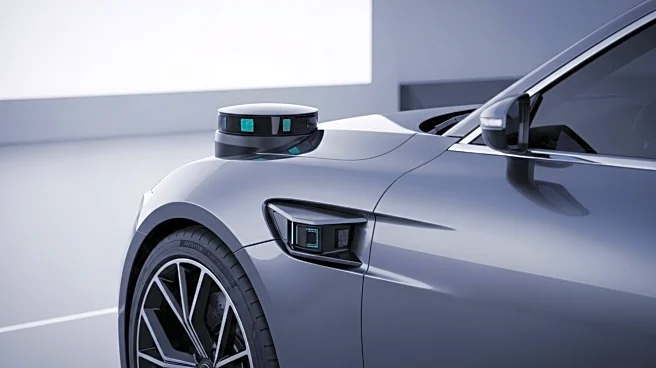What is the story about?
What's Happening?
Nissan is positioning itself as a key player in the autonomous vehicle market by focusing on lidar technology, which it plans to integrate across its vehicle lineup by the end of the decade. This approach contrasts with Tesla's reliance on cameras and neural networks. Nissan's strategy aims to enhance reliability and situational awareness in unpredictable traffic conditions, with a full deployment of its lidar-enhanced system targeted for 2027-2028.
Why It's Important?
Nissan's adoption of lidar technology highlights a significant divergence in the autonomous vehicle strategies of major automakers. Lidar offers enhanced depth perception, which could improve safety and performance in complex urban environments. This approach may appeal to consumers and regulators who prioritize safety and reliability. Nissan's strategy could influence industry standards and drive competition in the autonomous vehicle market.
What's Next?
Nissan's gradual rollout of lidar technology will be closely watched by industry stakeholders. The company's success could prompt other automakers to reconsider their reliance on camera-based systems. Regulatory approval and consumer acceptance will be critical factors in the widespread adoption of lidar-enhanced autonomous vehicles. Nissan's progress may also impact its market position relative to Tesla and other competitors.














